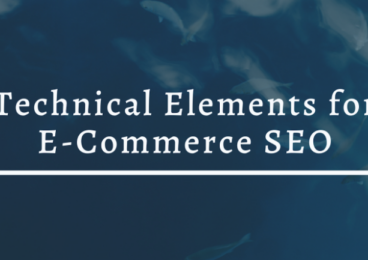 Reading Time: 3 minutes
Reading Time: 3 minutesIn the earliest days of the search engine optimization (SEO) world, when companies first realized the importance of ranking well on search engine results pages (SERPs), Google was rife with duplicitous marketers using black-hat SEO tactics like keyword stuffing and deceptive and manipulative link schemes. Understandably, this issue caused many problems. Google unveiled the Penguin update in response. Starting in 2012, Google Penguin aimed to punish pages using deceptive linking tactics and keyword stuffing. Over the next several years, Penguin evolved and eventually became part of the core Google Search algorithm in 2017.
While most modern digital marketers do their utmost to keep their SEO tactics as clean as possible, some fall to complacency or make understandable errors that bog down their SERP rankings. If you have noticed a decline in organic search engine traffic to your site, it may be due to the link profile of your website. A link audit is a smart way to determine the viability of your current linking environment.
What Is a Link Profile?
Google Search ranks pages on various criteria. Update history, content quality, domain authority, and link profile are some of the most pertinent ranking metrics that determine websites’ positions within SERPs. Your link profile is the history of all the links within your website as well as external links that lead back to pages on your website.
Prior to the Penguin update, it was not unheard of for some unscrupulous marketers to simply copy/paste links to their websites on message boards, forums, and comment sections of many other websites to artificially inflate their link status. This is no longer viable thanks to Penguin. It’s now up to digital marketers to ensure their websites’ link histories are genuine and secure. They can accomplish this by performing a link audit.
Goals of a Link Audit
A link audit is a pretty straightforward concept; you spend time investigating the entirety of your website’s link profile and remove high-risk links to improve your SEO results. This can be a very time-consuming process, but it is well worth the effort and investment to ensure your website has a solid link profile.
During a link audit, you’ll gain a stronger understanding of the websites linking to your own and identify high-risk and inappropriate links. This is essentially damage control, as Google and other search engines typically penalize websites with poor or compromised link profiles. In comes cases, a bad link profile can even lead to Google or other search engines de-indexing your website.
The primary goals of your link audit should include:
- Reducing the likelihood of search engine penalties and site de-indexing.
- Attracting healthier inbound links.
- Uncovering technical problems that diminish SEO success.
- Resolving canonical issues with multiple iterations of the same pages due to inbound linking conflicts.
- Identifying linking issues as soon as possible.
Link auditing is a necessary process, and it is not a one-off endeavor; you will need to regularly audit your website’s links to ensure a healthy link profile and maximize the effectiveness of your SEO efforts.
Perform a Proper Link Audit
The best way to begin a link audit is to define your goals for the audit. Are you attempting to simply gain a better understanding of your website’s link profile, or are you trying to discern the strongest and weakest aspects of your website? Are you trying to assess the reason behind a recent drop in traffic to your site, or do you want to have a competitive edge over your competitors? Are you trying to prevent future SEO problems by reviewing your site’s inbound linking history? These are just a few examples of acceptable and attainable goals for your link audit. Define your intentions for your link audit to guide the process.
One of the most important steps in a link audit is to remove questionable, dangerous, or otherwise high-risk backlinks. Generally, the most dangerous include websites that trigger malware or virus warnings upon visiting, sites that include pornography, online gambling, or discussion of dangerous topics like terrorism sympathizing, and websites full of unrelated links (commonly referred to as spam sites).
Luckily, the Google Penguin update includes a disavowal tool that allows site owners to disavow questionable backlinks over which they have no control to prevent Google from indexing them with their websites. Remember, while it is important to remove questionable links, you do not need to completely remove all low-quality links. Some of those links may be more important to your SEO than you realize, and some lower-quality sites that link to your own may have a future upswing and become tremendously beneficial to your site’s link profile.
Benefits of Link Auditing
Link auditing offers you a better understanding of your website’s SEO viability and the link ecology within and around your site. Ultimately, the best benefit to performing a thorough link audit of your website is improving your website’s credibility and authority. This, in turn, encourages healthier backlinks from other reputable sites and increases the efficacy of your SEO tactics. Link auditing may be a complex and time-consuming endeavor, but the payoff is well worth it.
At Vizion Interactive, we have the expertise, experience, and enthusiasm to get results and keep clients happy! Learn more about how our SEO Audits, Local Listing Management, Website Redesign Consulting, and B2B digital marketing services can increase sales and boost your ROI. But don’t just take our word for it, check out what our clients have to say, along with our case studies.




